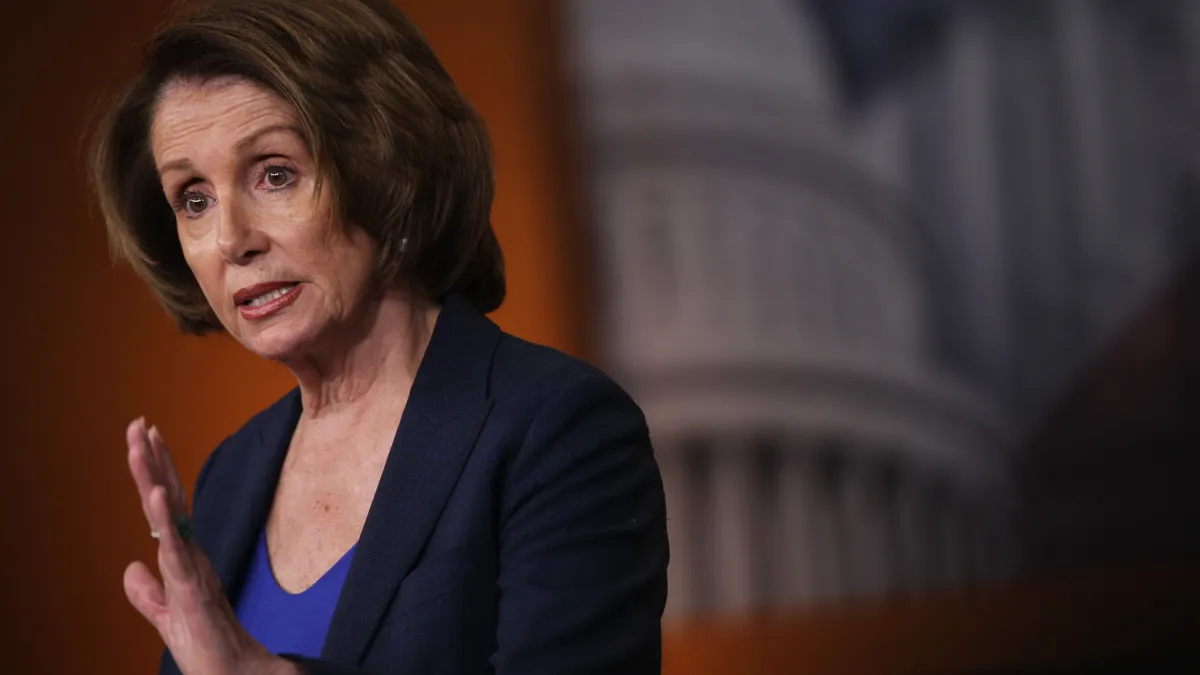Dive Brief:
- The House of Representatives filed an amicus brief, asking the Supreme Court to reject a challenge to the leadership structure of the Consumer Financial Protection Bureau (CFPB), according to a press release Monday.
- The Justice Department asked the high court last month to hear Seila Law v. CFPB, a case that argues the regulator's setup is unconstitutional because it gives the president the power to fire the director only "for cause." CFPB Director Kathy Kraninger also wrote lawmakers last month, indicating she backed the DOJ's position that the "for-cause" provision unfairly impedes President Donald Trump’s ability to control the executive branch.
- The Supreme Court did not add the Seila case to its docket for its October term, but the issue of CFPB constitutionality has prompted another company to petition the court.
Dive Insight:
"In the grip of President Trump, we have already seen the Consumer Bureau abandon its mission to protect the American people from unfair and predatory conduct," House Speaker Nancy Pelosi, D-CA, said in the press release. Indeed, the number of enforcement investigations the bureau has initiated has dropped precipitously, from 63 in fiscal 2017 to 15 the following year, The Wall Street Journal reported.
Kraninger, for her part, told bureau employees in an email last month that litigation over the bureau's constitutionality had "caused significant delays" with regard to enforcement and regulatory actions.
But House Financial Services Committee Chairwoman Maxine Waters, D-CA, in the press release, took issue with Kraninger's stance. "Despite previous court rulings that made it clear that the Consumer Bureau is constitutional and here to stay, Kathy Kraninger insists on working to undermine and politicize the agency at the expense of hardworking Americans."
During her nomination process last year, Kraninger did not indicate a position on the matter, saying "the ultimate question of the constitutionality of the Bureau's structure is one for Congress or the courts to resolve."
Companies are using the bureau's structure to challenge enforcement actions against them. In Seila, for example, a California law firm accused of making sales pitches to indebted consumers is trying to curb a CFPB investigation into its practices by arguing the bureau was set up in violation of the constitutional separation of powers.
Another company filed a writ of certiorari with the Supreme Court last week despite waiting for the U.S. Court of Appeals for the Fifth Circuit to issue a ruling.
"There is nothing to be gained by waiting [for the Fifth Circuit's decision]: The case for the constitutionality of the agency, pro and con, has already been exhaustively explored in the circuit courts in numerous thoughtful opinions," All American Check Cashing wrote to the high court in reference to the company's case against the CFPB.
Pelosi defended previous rulings in her comments Monday. "As the lower courts have recognized in upholding the constitutionality of the for-cause provision, 'Congress established the independent CFPB to curb fraud and promote transparency in consumer loans, home mortgages, personal credit cards, and retail banking,'" she said in the press release. "By not defending the Consumer Bureau's independence, the Trump Administration is choosing special interests over America's consumers."











